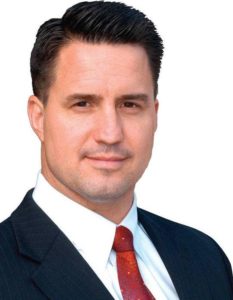“America is a God-fearing country with all that implies. America is the only major (first world) country in the world in which a majority of citizens still voluntarily take part in an active religious life. That is the primary source of American exceptionalism.” — Paul Johnson, famed British historian and author of “A History of the American Peoples.”

Alexis de Tocqueville
American exceptionalism was a term thought to be first coined first by Alexis de Tocqueville in the 1830’s, but has remained constant throughout our nation’s history. The general consensus of the exceptional nature of America went beyond natural characteristics, like the size and bounty of the nation. It also went beyond the burgeoning population and wealth of resources. It went to the unique love of the American people for freedom, within the context of an accepted Christian value system.
Famed British historian Paul Johnson, author of “A History of the American Peoples,” said this about American Exceptionalism in 1998:
“America is and always has been a religious country. It was founded primarily for religious reasons. Religious belief and conflict was absolutely dominant until the end of the 17th century, and even after this point, the Great Awakenings were determining factors in what happened in America. The first Great Awakening, in the second quarter of the 18th century, was the spiritual and emotional engine of the American Revolution that brought the United States into being.”
Alexis de Tocqueville would have agreed, as he wrote the following about what made America so unique and exceptional among nations: “There is no country in the world in which the Christian religion retains greater influence over the souls of men than in America.”
Flowing naturally from the generally Christian nature of Americans was the naturally tendency of people to put faith in God and each other first, not government. This resulted in the clear preference for a capitalist, free economic system and Constitutionally restrained government.
“The Americans combine the notions of religion and liberty so intimately in their minds, that it is impossible to make them conceive of one without the other.” — Alexis de Tocqueville
“Liberty cannot be established without morality, nor morality without faith.” — Alexis de Tocqueville
America grew quickly and around the time of its centennial in 1876 was noted as having the world’s largest gross domestic product. After World War II, America became one of the two largest military powers, and by the end of the Cold War was the sole military superpower. However, judging American exceptionalism solely in terms of economics or even military power is often misplaced. The power of America flowed from the values of her people, including limited government, capitalism, and faith in God.
Within the new Democrat Party, we now see a distinctly different worldview and vision for America. Instead of the traditional inclination toward faith and freedom, economically and socially, the current crop of Democrat candidates offers arguably the opposite vision. As Kevin D. Williamson describes the current crop of Democrat candidates:
“The proper context in which to understand what it is that Senator Sanders et al. stand for. They may, like Senator Elizabeth Warren, roll out 55 five-point policy proposals per hour, offering them with varying degrees of seriousness, but theirs is fundamentally a negative platform. What they hate and wish to liquidate is the system of markets, trade, law, regulation, and taxes that we call, for lack of a better term, “capitalism,” and their reasons are as much tribal (they resent the social status conferred by wealth as least as much as the political power attending it), moral, and aesthetic as they are economic. But their policy proposals are almost always the same: ‘Pillage the rich and create a lot of new public-sector jobs for me and my friends.’ And that much has remained constant whether they call themselves liberals, progressives, or socialists.”
I would only add that with the inclination to centralize power and limit individual freedom comes the corresponding de-emphasis of Christianity.
Americans are now at a crossroad with the upcoming election. Do we continue as a nation of people holding freedom, economically and socially, within a Christian value system first? Or do we now put our primary faith in expanded and overpowering government, operating within a socialist structure. In other words, do we continue to be that exceptional nation described by de Tocqueville, or do we give it up forever?




 RSS - Posts
RSS - Posts